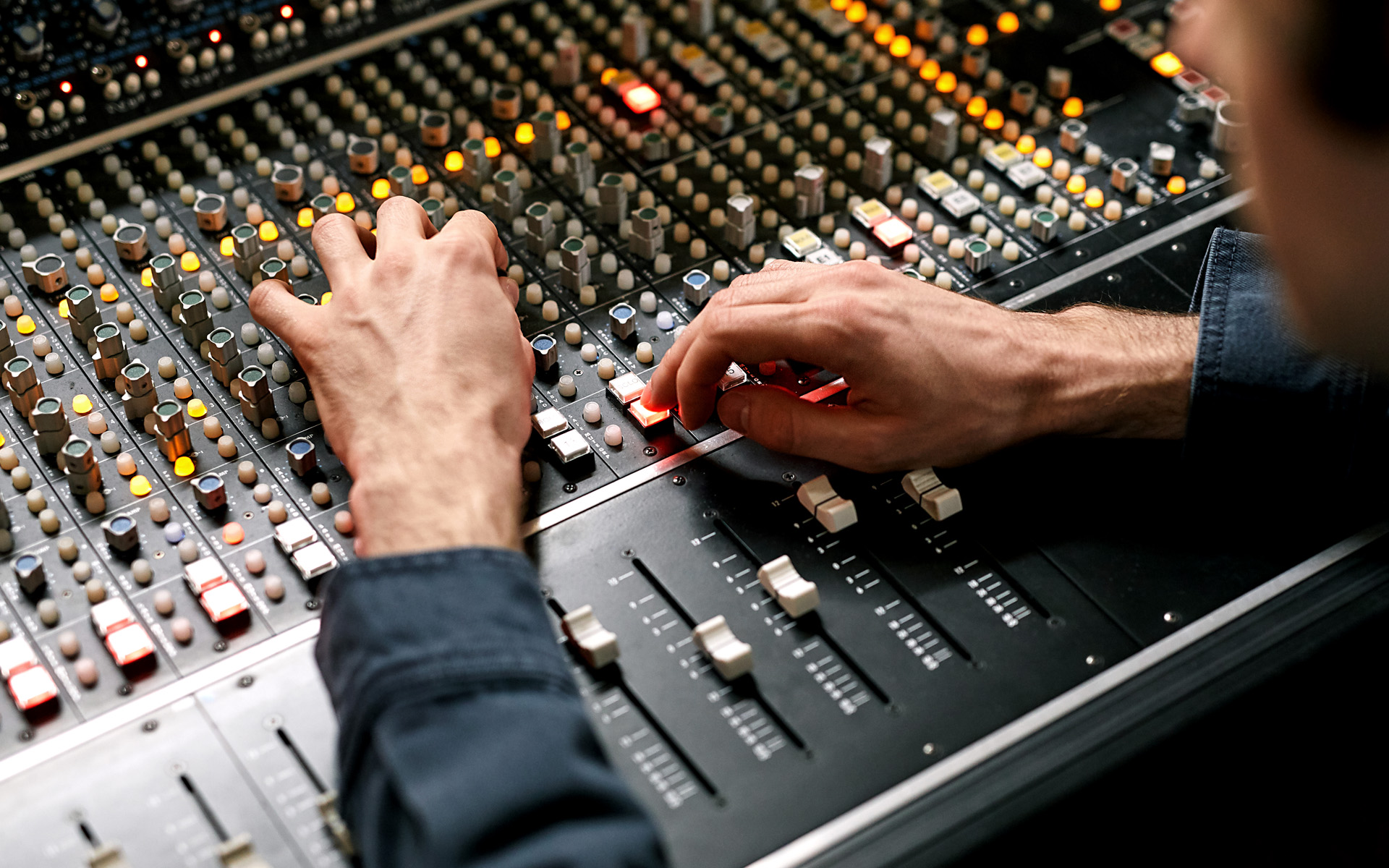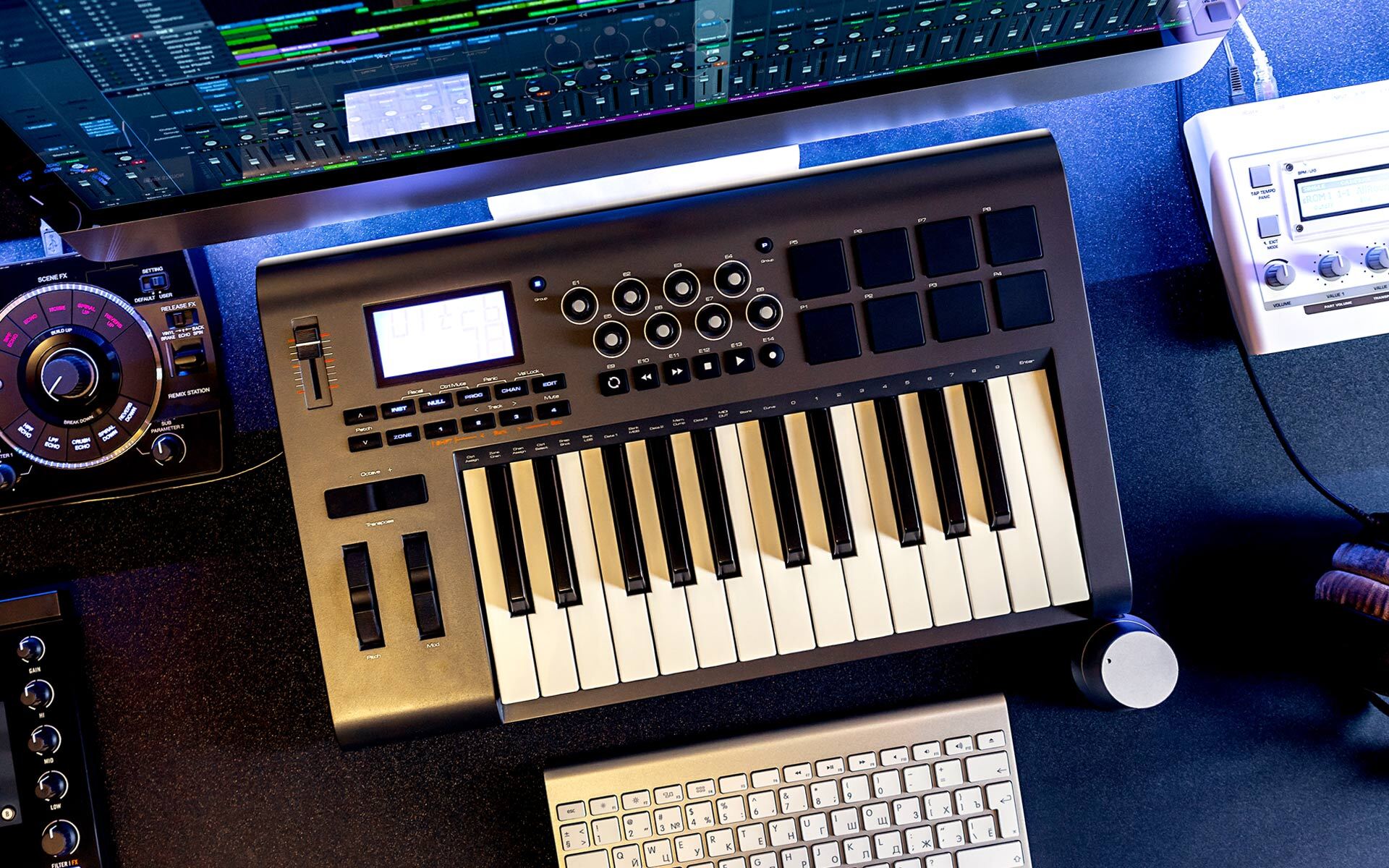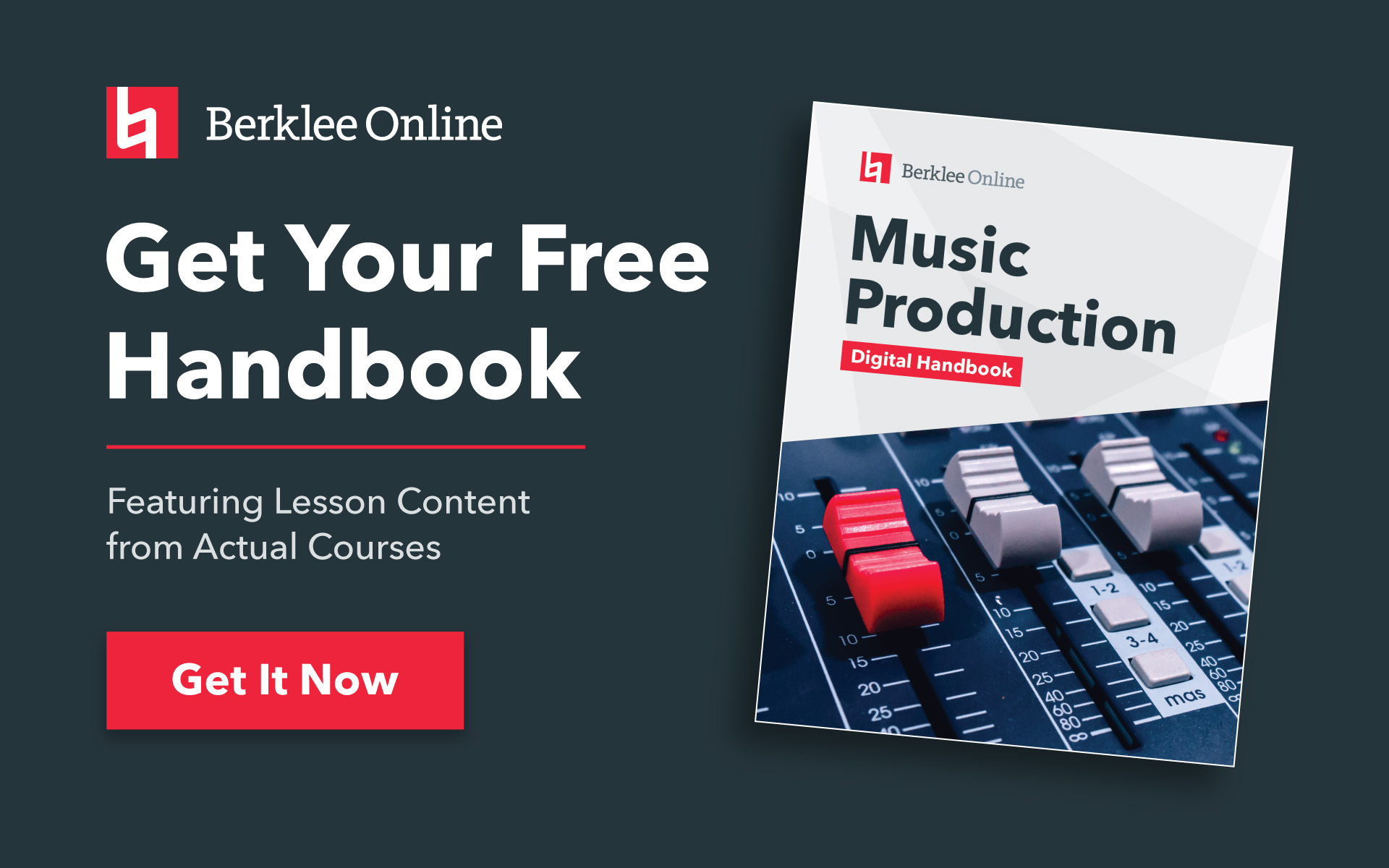Music production is the process by which music is created, captured, manipulated, and preserved so that it can be distributed and enjoyed. All of the recorded music that you know and love exists because it went through the production process, no matter how well-known or underground a recording may be, and no matter how minimalist or maximalist it sounds.
Professional music production is creative and technical. It requires well-developed listening skills, a good handle on recording technology, a deep musical knowledge, and effective project management and leadership skills by a music producer, also known as a record producer. If you’re thinking about getting into music production, here are some basics that you should know:
What is a Music Producer?
A music producer, or record producer, assists an artist with their recording project, bringing their vision to fruition and guiding their sound along the way. Being a music producer is in many ways a strange job. What a producer creates can’t be seen. What a producer creates is not even an object. If you zoom all the way out, what a music producer does for a living is this: Vibrate air molecules in such a way that when the air molecules bump up against a human life form, that life form feels something.
STUDY MUSIC PRODUCTION WITH BERKLEE ONLINE
What Does a Music Producer Do?
The role of a music producer has always been a somewhat nebulous one. Increasingly it can mean a number of vastly different things. Is someone who programs a beat a producer? Yes. Is someone who takes calls, coordinates meetings, and gets artists signed to labels a producer? Yes. Is someone who plays bass, co-writes songs, and mediates disputes between band members a producer? Yes.
A music producer holds many roles, but here are the four most vital:
1. Schedule and Budget
First, the producer’s responsibility is to schedule a recording session within the appointed budget and then lead the musicians through that schedule in an efficient manner. Additionally, they guarantee the successful technical and artistic completion of the project.
In many ways, it is the primary reason a music producer is given the job. They have demonstrated by their work that they are a professional, capable of making a successful record and submitting the finished product exactly on the contractually-agreed-upon date. For a larger commercial recording project for a major label—or a smaller but well-financed label—the completion date is a critical part of a larger schedule. The process includes manufacturing, marketing, and publicity schedules that will coordinate to launch the record’s release (or “street date”).
In the case of a lower budget, “indie,” or personal project, having an experienced producer oversee completion is a good idea. For example, they can act as a hedge against the artist insisting on further overdubbing, or endless remixing, which is (unfortunately) the cause of many records never coming out. Therefore, a music producer’s credo must be “OTOB”: On Time and On Budget.
2. Shaping the Music
This second responsibility revolves around the question of how a producer takes the raw material of an artist’s song and transforms it into a finished recording. This function is both artistic and commercial. It must express the artist’s musical and emotional intent, but must also reach a broad audience.
George Martin opined that the producer is the person “who actually puts the frame around everything, presents it to the public, and says ‘This is what it is.’” It’s the producer’s taste that makes it what it is.
3. Supervising Performance
The producer must know how to identify and obtain the best performances from the individual members of the group. There is an assumption that, if it moves you, it can move other listeners. For the producer, trusting this emotional response is a quintessential function. The confidence to say, “I like this one,” is at the heart of a producer’s role. They apply the same critical function at virtually every stage of the recording process. From the decision that a particular backing track performance has the right feeling and energy, to the approval of a guitar solo, and the sound of the various instruments coming through the monitors, all come back to the producer, who must make that judgment.
4. ‘Work vs. Play’
The producer must maintain the subtle balance between the demands of the work and the creative elements that make up compelling music. The skilled producer creates a balance between these two oppositions, and does so by manipulating that amorphous idea musicians love so much: The Vibe.
The first thing to do when creating a vibe is to pretend that you are there to play, and record the results. (This also involves making the recording process as invisible as possible.) You, the producer, are of course very aware of the work that needs to be accomplished in each session, but you keep those thoughts to yourself. (“Pay no attention to the man behind the curtain!”) So with that in mind, here are some ways to establish the all-important vibe:
Positive vs. Negative
A playful and fun session rests on a foundation of positivity, optimism, and team spirit. As the leader (or more accurately, the “Coach”), the positive vibe begins with you. A generally affirmative state of mind is infectious, if you and the musicians agree that “fun” is the goal. Conversely, a negative vibe can stop a session dead in its tracks.
Confidence
Once again, a music producer’s leadership role is to inspire, and instill in the team the feeling that “everything will work out fine.” If a producer is well-prepared, experienced, and keenly aware of what needs to be done at each stage of the recording, they’ll have the confidence necessary to . . .
Keep It Moving
All great producers know that constant forward-motion is essential to the production process. (The idea that a shark must keep swimming or risk death is a myth, but an amusing one to consider here.) Moving quickly from one musical task to the next can create its own momentum that lends itself immediately to an uplifting vibe.
The Joy of Recording
Yes, making records is work, but it’s also one of the most enjoyable jobs you can imagine. Never lose sight that every recording session is a privilege; a grateful attitude can give rise to fun and laughter.
Read more about music production with Berklee Online course author Erik Hawkins.
How is music produced?
A musical idea can take many forms. It can be a simple drum and bass pattern to a complete song with melody, lyrics, and chord changes. How the final product sounds has a great deal to do with musical arrangement and the tools used to produce it.
The steps involved in producing a piece of music are:
1. Musical Ideas
The song you’re going to produce and the instruments you’ll use in the arrangement. As a producer, you’ll decide the parts that will be recorded and who will play them.
2. Recording
The performances that make up our musical arrangement are recorded to any variety of hardware devices and software as audio or MIDI data.
3. Editing
When we use MIDI sequencing or hard-disk recording, the performances we’ve recorded can be edited in a variety of ways to change either the individual performance or the entire arrangement.
4. Mixing
The individual tracks that make up a multitrack recording are combined and processed using effects to create a final stereo recording to our song.
5. Mastering
Where we prepare our finished stereo mix for distribution as an audio CD or a digital file by making final adjustments to the overall sound of the recording.
TAKE MUSIC PRODUCTION 101 WITH BERKLEE ONLINE
How Much Money Does a Music Producer Make?
How much money a music producer makes depends on your experience and clout. The producer of a chart-topping artist is going to make a lot more than a producer working for a small independent label. According to the 2016 edition of the Music Careers Dollars and Cents report by the Career Development Center at Berklee College of Music, record producers can make anywhere from $25,000 to $1,000,000 per year, or even more.
Explore Berklee Online’s Careers Page to learn more about jobs in music production.
Music Production Equipment
In the past, music production equipment was a much more expensive investment. Now it’s possible to get up and running with a few thousand dollars. Basic music production equipment includes:
- Computer
- Digital Audio Workstation (DAW): Pro Tools, Logic Pro, GarageBand, etc.
- MIDI Controller
- Audio Interface
- Microphone
- Headphones
- Audio Monitors
Equipment is amazing, but the real heart of the recording comes down to the people. We love the gear, we love the studios, but the music comes first. In order to create the best recording possible, you must preserve the humanity in the music. Music production equipment can be as simple as your phone recorder, until you are ready to invest in the above mentioned items.
Read about Berklee Online student and music producer Fraser T. Smith.
How Do You Become a Music Producer?
Many aspiring producers intern or apprentice with an established music producer as a production assistant. They handle details such as scheduling, emailing, setting up and breaking down gear in the studio, and assisting in sessions. In addition to gaining experience, production assistants are in the position to make key relationships and connections with engineers, studio personnel, and artists. These are the very people who can give an aspiring producer a career break. While most producers at the top of the field are freelance, many work in-house for record labels and recording studios.
One way that you can start gaining music production skills and experience is through Berklee Online’s courses, certificates, bachelor’s, and master’s degree programs. Not only will you gain the hands on experience, from anywhere, but you’ll make connections with Berklee’s renowned music production faculty as well as producers from around the world at all stages in the game.
STUDY MUSIC PRODUCTION WITH BERKLEE ONLINE
The above article is compiled from multiple Berklee Online course authors, including Sean Slade, Dan Thompson, Sylvia Massy, and Stephen Webber.












